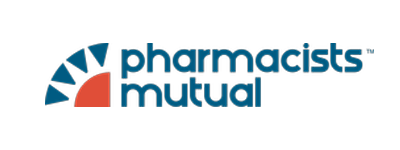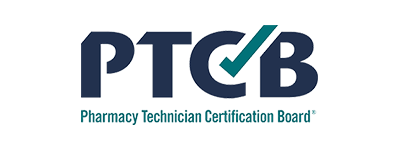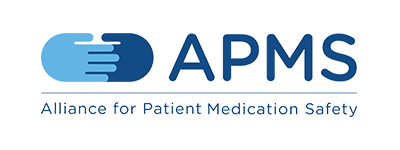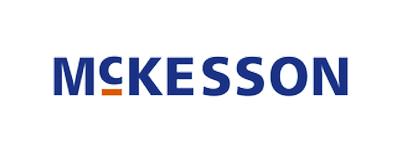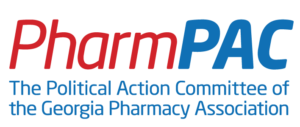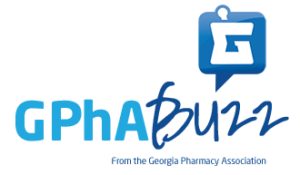2022 APhA Awards & Grants
2022 APhA Immunization Champion Awards: Call for Nominations – Deadline: September 15, 2021
The APhA Immunization Champion Awards program recognizes individuals and organizations in the pharmacy space who have made extraordinary contributions toward raising vaccination rates. Nominate yourself or your colleagues who have undertaken successful efforts in their communities.
We highly encourage nominations that specifically relate to immunization services during the COVID-19 pandemic. Submit your nomination online by September 15, 2021.
https://apha.secure-platform.com/a/organizations/main/submissions/details/37682
Awards will be presented at APhA2022, March 18–21, 2022.
2022 APhA Call for Applications for APhA Foundation Incentive Grants – Deadline: August 23, 2021
https://www.aphafoundation.org/incentive-grants
Vaccine Confidence Incentive Grants: Pharmacy Residents may apply for a COVID-19 Vaccine
Confidence Incentive Grant ($5000). Preference will be given to proposals which incorporate delivery of vaccinations within individual practices and/or communities, and projects could address one or more of the following focus areas:
- Enhancing COVID-19 vaccine confidence among pharmacists/pharmacy team members, patients and/or communities
- Increasing access to/uptake of COVID-19 vaccines within identified populations: adolescents, underserved or minority populations, rural areas
- Integration of COVID-19 vaccinations with other vaccines, addressing messaging, practice strategies, and/or administration of vaccines
Student pharmacists and pharmacists may apply for an Innovation in Immunization Practices Incentive Grant ($1000). Preference will be given to projects within the following focus areas:
- Implementing and delivering immunization services in a COVID-19 environment; gaining public trust, overcoming vaccine hesitancy
- Optimizing engagement of pharmacy team members in the provision of immunization-related services in a COVID-19 environment – expanding or reinstating routine vaccinations
- Development of referral mechanisms for immunization services within the community, and strengthening the immunization neighborhood
- Advance usage of Immunization Information System (IIS) for immunization assessment and enhanced immunization delivery methods
- Increasing vaccination rates in the adult population, pregnant patients, and college-age students
- Increasing access to and administration of HPV vaccines
- Implementation of new ACIP recommendations in pharmacy practice (ie. pneumococcal)
- Reinstating routine vaccinations
- Childhood/adolescent vaccinations and vaccine services (and engagement of pharmacy with other healthcare professions)
- Addressing access and pharmacy deserts
To apply go to: https://www.aphafoundation.org/incentive-grants
Pharmacy Techs Can Now Administer Flu Shots
Under HHS authorization (PREP Act 10.20.20) trained pharmacy technicians can administer COVID-19 vaccines and ACIP recommended childhood vaccines.
And now, through the 8th amendment (August 4, 2021) issued by HHS Secretary Xavier Becerra, pharmacy techs can also administer seasonal influenza vaccines as recommended by ACIP.
Pharmacy techs must complete ACPE accredited training and operate under the direct supervision of a licensed pharmacist who is also trained according to state guidelines.
GPhA is offering the accredited training! Pharmacy techs will complete 3 hours of home-study and then attend the 3-hour live training on Saturday, October 16, 2021, in Sandy Springs. Space is limited so don’t wait! Click here for all of the details and to register now!
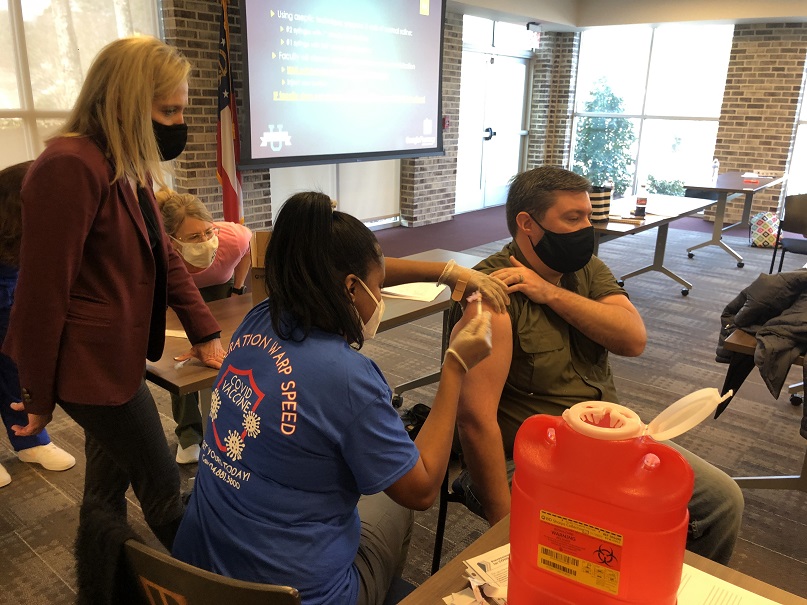
FDA Extends Shelf-Life of J&J COVID-19 Vaccine
From: Mitchel C. Rothholz, RPh, MBA, Chief of Governance & State Affiliates and Executive Director, APhA Foundation, American Pharmacists Association
The Food & Drug Administration authorized an extension of the shelf life for the Johnson & Johnson’s Janssen COVID-19 vaccine from 4.5 months to 6 months (an additional 45 days). The decision is based on data from ongoing stability assessment studies, which have demonstrated that the vaccine is stable at 6 months when refrigerated at temperatures of 36 – 46 degrees Fahrenheit (2 – 8 degrees Celsius).
https://vaxcheck.jnj
Vaccine providers should visit https://vaxcheck.jnj/ to confirm the latest expiration dates of vaccine, including those currently available for administration throughout the U.S. This extension applies to refrigerated vials of J&J/Janssen COVID-19 vaccine that have been held in accordance with the manufacturer’s storage conditions.
COVID-19 vaccines that are authorized under an EUA do not have fixed expiration dates, and their expiration dates can be extended as we get more stability data. Always be sure to check the manufacturer’s website to obtain the most up-to-date expiration dates for COVID-19 vaccines you have on hand.
Wellstar Executive Director Retail Pharmacy Network Job Posting
- Position: Executive Director, Retail Pharmacy Network
- Link to apply: https://social.icims.com/job/Executive-Director-Retail-Pharmacy-Job-US-GA-Marietta-30508167.html?isd_source=web&isd_pub=2588307
- Contact for more information: Teresa Waters teresa.waters@wellstar.org
- Job description
Public Health Emergency Still Exists
Renewal of Determination That A Public Health Emergency Exists
The U.S. Department of Health & Human Services formally made a declaration effective July 20, 2021, that a public health emergency exists and has existed since January 27, 2020.
https://www.phe.gov/emergency/news/healthactions/phe/Pages/COVID-19July2021.aspx
CliffNotes: The pandemic is not over.
Expired Vaccine Guidance from CDC
From the Georgia DPH and CDC
Today we received additional guidance from CDC about expiring COVID vaccine.
Please see below:
Expiring COVID-19 Vaccine
In July and August, some lots of Pfizer, Moderna, and J&J/Janssen vaccines are set to expire. In order to minimize the number of unused expired doses and manage expiring doses correctly, we encourage providers to:
• Monitor expiration dates weekly, rotate stock as needed, and follow a “first in, first out” strategy to manage inventory.
• If nearing expiration, check posted manufacturer information for the most up to date expiration/extension information for vaccine lots.
How to handle expired or expiring COVID vaccine supply:
• Upon expiration, providers who are able to safely quarantine expired doses in the appropriate storage unit environment, should:
- Quarantine doses, marked Do Not Use.
- Place vaccine in a storage unit where the risk of inadvertently administering an expired dose can be avoided
• If the provider is unable to safely quarantine expired doses, the provider should:
- Based on the latest expiration information, REMOVE expired vaccine from the storage unit IMMEDIATELY. Do not give staff opportunity to administer expired vaccine.
• If expired vaccine is inadvertently is administered, it is considered a vaccine administration error and requires remediation including a VAERS report, contacting the recipient to inform them of the error, and may or may not require revaccination based on the manufacturers’ guidance. Guidance on vaccine administration errors can be found in Appendix A of the Interim Clinical Considerations for Use of COVID-19 Vaccines Currently Authorized in the United States.
Report Expired Vaccine
• Please promptly report any expired vaccine. This helps CDC and DPH accurately monitor the amount of vaccine in the field. Keep in mind that there are no negative consequences for reporting waste, and it will not negatively impact future vaccine shipments. CDC recognizes that unused expired vaccine is a normal part of any vaccination program, especially one of this scope and size.
NCPA Urges FTC Review of Anticompetitive PBM Conduct
NEWS RELEASE
ALEXANDRIA, Va. (July 1, 2021) — As part of what the Federal Trade Commission said will be the first in a series of monthly meetings opening its work to the public, National Community Pharmacists Association General Counsel Matthew Seiler, RN, Esq., spoke to the commission at today’s open meeting about pharmacy benefit managers and their anticompetitive practices harming patients and neighborhood pharmacies. Each speaker was allowed one minute to make their remarks. Seiler’s are excerpted below and linked here as prepared for delivery:
“The PBMs are systematically driving community pharmacies out of business through anticompetitive practices such as below-cost reimbursement and patient steering to PBM-preferred networks. This has led to pharmacy deserts. One in three neighborhoods in the 30 most populous cities are pharmacy deserts. NCPA urges this body to take immediate action to curb the PBMs’ anticompetitive conduct and the effects of consolidation and vertical integration in the pharmacy industry.”
Participating in today’s open meeting is the latest in NCPA’s ongoing efforts to press the FTC, other regulators, and policymakers on antitrust enforcement and anticompetitive issues in the prescription drug supply chain. Just last week NCPA urged FTC Chair Lina Khan and an affiliated multilateral task force to more fully scrutinize and develop enforcement and policy efforts.
NCPA CEO B. Douglas Hoey, pharmacist, MBA, says, “FTC rulings can have profound consequences for the public, particularly with health care, so it’s critical that decisionmakers be open to receiving input on the effects of those choices. Marketplace competition should allow consumers the freedom to choose but in health care, the largest players have often been permitted to manipulate the system and rob patients of choice. We’re grateful to Chair Khan and the commission for the opportunity to share concerns about PBMs’ anticompetitive behaviors and are eager partners in the work to help restore fairness and balance for patients and their trusted small business pharmacies.”
Janssen (J&J) COVID Vaccine to Resume in the United States
April 26, 2021
Dear Colleague:
After a thorough safety review, the U.S. Food and Drug Administration (FDA) and the Centers for Disease Control and Prevention (CDC) have determined that the use of Janssen (J&J) COVID vaccine should resume in the United States. As such, the Georgia Department of Public Health (DPH) COVID Vaccine Program will again offer J&J vaccine to Georgians aged 18 and older.
A warning will be added to the J&J vaccine about the potential for very rare, but severe blood clots associated with the vaccine. Vaccine providers administering the J&J vaccine should review the Janssen COVID-19 Vaccine Fact Sheet. Vaccine recipients and/or their caregivers should be provided with the Janssen COVID-19 Vaccine Fact Sheet for Recipients and Caregivers. Both fact sheets now include information about thrombosis and thrombocytopenia syndrome which have occurred in a very small number of people who have received the J&J vaccine.
|
US Pharmacy and Medically Underserved Areas Enhancement Act
Big news from Capitol Hill: The Pharmacy and Medically Underserved Areas Enhancement Act has been introduced in the U.S. House of Representatives with bipartisan support.
APhA has continued working on your behalf to get Congress to approve a bill that recognizes pharmacists for the incredible value they add to the health care system. Our efforts have paid off. Throughout the pandemic, you’ve demonstrated your unwavering commitment and risen to the occasion in a most uncertain and dangerous time. We’ve been right there beside you advocating—and achieving—recognition and authorities that put you in a central role to free Americans from the pandemic through vaccination. Now is the time to aggressively push to get a bill across the finish line that recognizes pharmacists as providers
Advocacy Next Steps
We are using our relationships with congressional leaders and vigorously recruiting more cosponsors to get the bill in front of the appropriate committees. We need your help! APhA members can play a significant role in getting the job done. We need you to contact your representatives.
TAKE ACTION NOW
About the Bill
This legislation would give tens of millions of Medicare patients in medically underserved communities access to pharmacist-provided primary health care services. This is critically important for both APhA members and patients who would otherwise struggle to stay safe and healthy.
The bill would enable pharmacists to sustainably deliver Medicare Part B services that are already authorized by their respective state laws. These services may include:
• Medication management
• Management of chronic conditions, such as diabetes and hypertension
• Point of care testing (e.g., cholesterol, COVID-19, influenza, strep)
• Immunization screening and administration
• Tobacco cessation services
• Transition of care services
“In many states across the country, pharmacists are already critical members of the health care team and are compensated appropriately for that work. It’s time for Medicare to get with the program and recognize what these states have already learned—pharmacists provide great care,” said APhA Executive Vice President and CEO Scott J. Knoer.
The Pharmacy and Medically Underserved Areas Enhancement Act’s primary sponsors are Rep. G.K. Butterfield (D-NC) and Rep. David McKinley (R-WV). The bill’s introduction was led by the APhA Government Affairs team, who have been actively pursuing provider status for years. You’ll hear much more from us in the coming weeks.
For now, get involved and be and Provider Status advocate by accessing the tools on our Provider Status web page
GET STARTED
Georgia DPH and CDC Pause J&J Vaccine
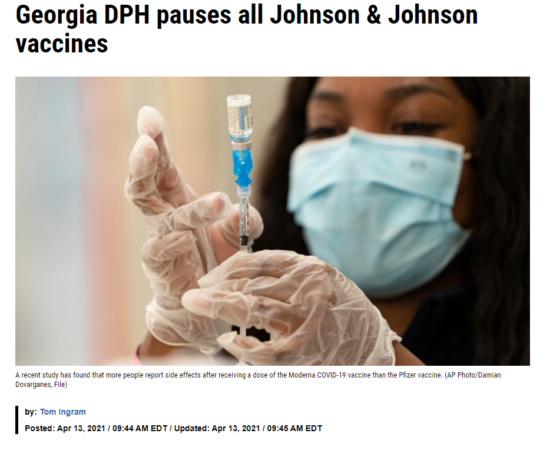
ATLANTA, Georgia (WRBL) – The Georgia Department of Public Health, following the guidance of the Centers for Disease Control and Prevention and the Food and Drug Administration, paused all Johnson & Johnson vaccines in the state, according to a news release.
DPH said they are pausing the vaccine while CDC and FDA investigate data involving six reported cases of a “rare and severe type of blood clot” that occurs 6 to 13 days after vaccination.
DPH said it would issue additional information about appointments and rescheduling soon.
https://www.wrbl.com/news/health/coronavirus/georgia-dph-pauses-all-johnson-johnson-vaccines/
Counterfeit Pills Lead to Overdoses
The Georgia Department of Public Health (DPH) has been alerted of a possible cluster of overdoses related to counterfeit pills which may be sold as Xanax or Percocet and contain fentanyl. These counterfeit pills may be driving increased overdoses in Richmond County, the Coastal Health District, and the Northwest Health District.
If you are seeing unusual overdose activity or suspect the presence of possible counterfeit pills in your area, please call the Georgia Poison Center at 1-800-222-1222 or contact the Drug Surveillance Unit at ga.opioidprogram@dph.ga.gov.
2021 Legislative Session: Week 12
Legislative Days 39- 40 – Sine Die!
GPhA Priority legislation makes its way to the Governor’s desk.
SB46
The final two legislative days were a whirlwind for GPhA with two big bills still in play. As SB 46 (pharmacist vaccine expansion) was set for a floor vote, misinformation and misunderstanding about the bill made its way across the internet like wildfire. Thankfully, Georgia’s pharmacists answered the call and reached out to legislators to set the record straight about what this bill does and why this bill is critical for Georgians. Ultimately, the legislation passed the House via substitute on day 40, Sine Die, by a vote of 109 to 56. It then made is way to the Senate where it was agreed to at 11:55 p.m. It now goes to the Governor’s desk for his consideration.
A huge thank you to Georgia’s pharmacists who stepped up like never before to fight for this bill, GPhA’s Board of Directors, GPhA CEO Bob Coleman who never wavered and rallied the troops, the GPhA communications team of Michelle Turkington and Andrew Kantor, and GPhA’s lobbyist, Cindy Shepherd. Also, a big thank you to Dorothy-Leonne Glasser with the Rx in Reach Coalition.
There are too many legislators to thank who helped get this bill across the finish line but set forth below are a few legislators and leaders who deserve a special thank you.
- Senators Dean Burke, Bo Hatchett, Kay Kirkpatrick, Jeff Mullis, Ben Watson
- House Speaker David Ralston and representatives Sharon Cooper, Matt Hatchett, Rick Jasperse, Trey Kelley, David Knight, Mark Newton, Bert Reeves, Ron Stephens, and Richard Smith.
- And a special thank-you to Governor Kemp and his healthcare team, the Department of Public Health and their government affairs team, and Lieutenant Governor Duncan and his team.
HB653
More good news, HB 653 (Pharmacists conducting COVID testing for 12 months after the end of the federal emergency) also passed the Senate on day forty. This one was a bit less controversial receiving a vote of 48-0. A huge thank you to Representative Rick Jasperse and Senators Ben Watson and Chuck Hofstetler for bringing this bill to the finish line. It now goes to Governor Kemp for his consideration.
Set forth below are other bills GPhA monitored and where they ended up. Finally, it was worth mentioning that several other significant bills ended up failing to pass this year including HB 369 (expand PA & NP prescribing authority) and HB 290 (allowing hospital and nursing home visitation by patient designated family member or friend during public health emergency).
Passed and Await Governor Kemp’s Consideration
- HB 93 (Eliminating duplicative state licensure and regulation of clinical laboratories)
- HB 112 (Extending COVID-19 immunity protections for businesses and healthcare providers to July 2022)
- HB 234 (Option for self-funded healthcare plans to opt into Georgia’s Surprise Billing Consumer Protection Act)
- HB 316 (expanding pharmacist to technician ratio to 4-1 provided that 2 of the 4 technicians are certified)
- HB 367 (Drug update)
- HB 454 (Providing for certain coverage requirements concerning providers that become out-of-network during a plan year)
- SB 195 (Medical cannabis and epidiolex) (previously HB 645 & HB 601 respectively)
- SB 80 (Prior authorization)
- SB 215 (Authorizing certified medication aides to administer certain medications to patients in nursing homes and requiring nursing homes that use certified medication aides to secure the services of a licensed pharmacist as part of a nursing homes quality assurance functions)
Did Not Pass
- HB 49 (Mental Health Parity Act requiring drug plans to include coverage for mental health conditions)
- HB 73 (Insulin copay cap at $50)
- HB 164 (Requiring insurers pass back 80% of rebates to patients at prescription drug counter)
- HB 413 (Prohibiting state or local governments from requiring individuals to submit to vaccinations as a condition to certain actions if the vaccine does not meet certain conditions)
- HB 447 (SHBP transparency)
- HB 448 (Medicaid managed care transparency)
- HB 474 (Requiring concurrent prescribing of n opioid antagonist with opioids under certain circumstances)
- HB 592 (Clarifying gross negligence standard in actions involving COVID-19 liability claims against healthcare providers)
- HB 601 (Removing Epidiolex as a Schedule V controlled substance – passed as SB 195)
- HB 645 (Making changes to Georgia’s existing medical cannabis law – passed as SB 195)
- SB 1 (Providing that entities that receive certain tax credits and that provide self-funded, employer sponsored insurance plans are submitting entities)
- SB 92 (Prohibiting the sale to and by minors of OTC drug products containing dextromethorphan)
- SB 181 (Reducing out-of-pocket cost of consumers requiring insulin)
2021 Legislative Update: Week 11
Legislative Days 36- 38
With the number of legislative days dwindling, things are heating up under the gold dome. For GPhA’s priority legislation, SB 46 (pharmacist vaccine expansion), it was another frustrating week with the bill making it through rules, on the calendar for a floor vote and then being withdrawn and recommitted to Rules. GPhA will do everything possible to get this bill across the finish line and we remain optimistic that we will get it through.
HB 653 (pharmacists conducting COVID testing for 12 months after the end of the federal emergency) was favorably reported out of the Senate Health and Human Services Committee unanimously. It passed out without any amendments or substitutes which was a positive as it was being looked as a potential vehicle for other legislation. It also made it through Senate Rules and can be expected to get a floor vote in the Senate in the final two days of legislative session.
Week 11 proved eventful with bill amendments and substitutions as legislators and lobbyists look to find vehicles to help move legislation forward that has stalled in the committee process. Set forth below is an update of some of those moves as we continue to track issues impacting pharmacy.
HB 316
Representative Stephens’ bill expanding pharmacist to technician ratio to 4-1 provided that 2 of the 4 technicians are certified was passed out of the Senate and now goes to the Governor’s desk for his consideration.
HB 454
Representative Newnan’s bill, providing for certain coverage requirements concerning providers that become out-of-network during a plan year, was favorably reported out of committee via substitute.
HB 645 & HB 601
Representative Gravley’s medical cannabis bill, HB 645, was heard in committee for a second time and was again voted down.
HB 601
Representative Stephen’s bill removing Epidiolex as a Schedule V controlled substance has yet to be heard in a Senate committee.
SB195
Both of these bill’s were substituted into SB 195, which previously dealt with hemp farming.
SB 80
Senator Kirkpatrick’s prior authorization bill was by the House via substitute.
SB 92
Senator Robertson’s legislation prohibiting the sale to and by minors of OTC drug products containing dextromethorphan was completely substituted out in the House Judiciary Non-Civil Committee hearing and replaced with legislation authorizing PA’s and NPs to prescribe Schedule II controlled substances in emergency situations pursuant to a protocol.
However, while SB 92 itself was gutted, its language was added into HB 117 via substitute on the Senate side and so still has a pathway forward.
Multilingual Resources
Here are a few resources with multilingual information about COVID-19 Vaccines for recipients, caregivers and healthcare providers.
CDC Multilingual resources:
https://www.cdc.gov/coronavirus/2019-ncov/need-extra-precautions/communication-toolkit.html
Moderna Multilingual Fact Sheet:
Pfizer Multilingual Fact Sheet:
J&J Multilingual Fact Sheet:
FDA COVID Multilingual Took Kit:
Indy Health Insurance
From Bob Coleman on March 25, 2021
If you have patients on the Indy Health plan, please review the three files below. The first is being sent to member/beneficiaries by the company’s mail vendor. The second is the script for the Robocalls which will start this evening or in the morning. The third is the notice to pharmacists which will be pushed last night. The member/beneficiary and pharmacy notices will also be posted to the Indy Health website.
Medicare drug plan with Indy Health Insurance Company ended on March 23, 2021 announcement
Robo Call Script
FAQ Indy Health Insurance Network Pharmacies
Important information about Indy Health
Arkansas Medicare Part D pharmacy benefits insurer Indy Health is under an order of rehabilitation (effective March 18). As part of that order, the Arkansas insurance commissioner has taken control of Indy Health.
Click here to read the full news release from the Arkansas Insurance Department. Click here for a FAQ document from Indy Health.
Click here for the Direct Member Reimbursement Form
LI-NET will accept Indy Health Medicare part D claims effective March 1–31 through the LI-NET program for transition coverage of prescription drugs. Indy Health claims will pay through LINET (Humana transition claims for Medicare D). GPhA members wanting additional information, please contact the Arkansas Department of Insurance, visit the GPhA website, or check your email for the latest information.
Part D members with questions and/or concerns should call 1-800-799-0927 or email customercare@indyhealthinc.com. Customers may also contact the Arkansas Insurance Department Consumer Services Division at 1-800-852-5494.
Indy Health claims will pay through LINET (Humana transition claims for Medicare D)
ID is Medicare number
Bin 015599
No group
PCN 05440000
◀ Newer Posts Older Posts ▶

